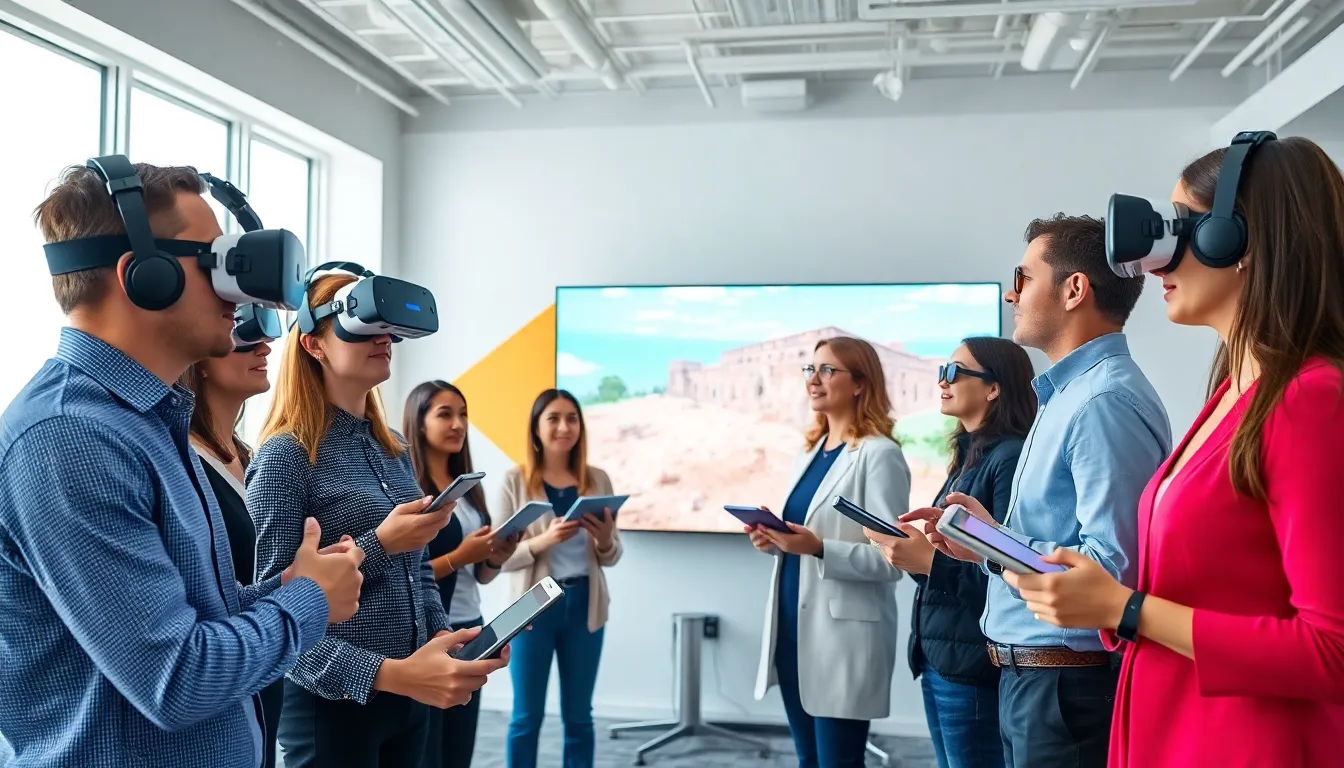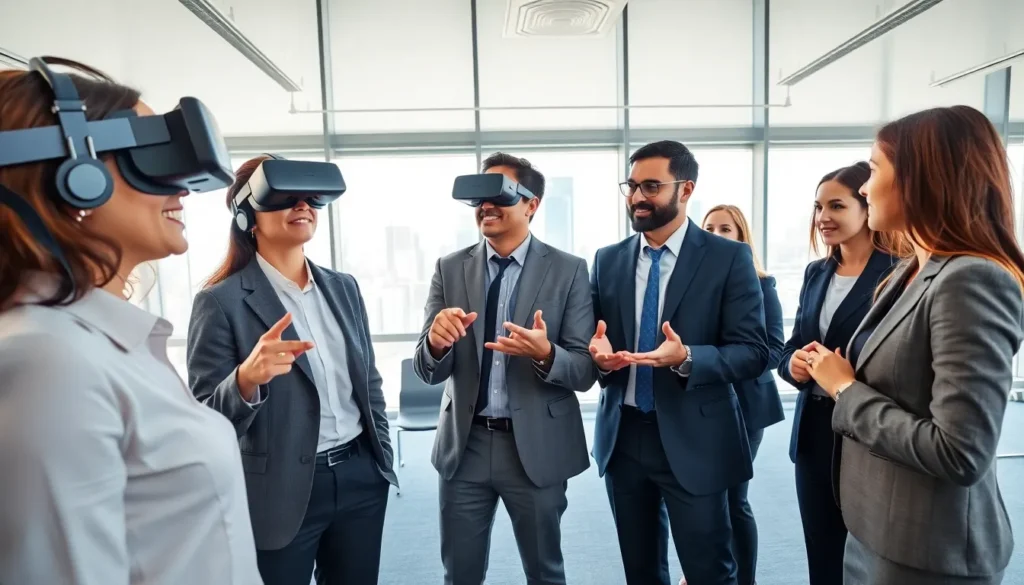Table of Contents
ToggleEver wondered what it’s like to step into a world where the impossible becomes possible? Welcome to the realm of virtual reality (VR). Imagine trading your 9-to-5 for a job that lets you create entire universes or train astronauts without leaving your home office. Sounds intriguing, right? As technology advances, so does the job market, and VR is at the forefront of this revolution. Let’s jump into the exciting career opportunities waiting for those ready to make the leap into immersive technology.
Understanding Virtual Reality and Its Applications

Virtual reality is not just a trend: it’s a groundbreaking way to experience digital content. By using specialized hardware and software, it transports users into entirely new environments that feel as real as the outside world. Consider applications in gaming, healthcare, real estate, education, and even mental health therapy. Instead of simply reading about historical events, imagine walking through them. From virtual classrooms that allow students to interact in real time to VR simulations for medical procedures, the possibilities are limitless. This technology is reshaping how we learn, explore, and create, making it an essential aspect of many industries.
Types of Jobs in the Virtual Reality Industry
The job market for virtual reality is as diverse as the technology itself. Here are some opportunities that showcase the spectrum of roles available in this exciting field:
VR Developer
A pivotal role, VR developers create immersive applications and experiences using coding languages like C# or C++. They turn visions into reality, literally.
3D Artist
Creative minds with skills in 3D modeling bring virtual environments to life. Using software such as Blender or Maya, they design intricate worlds and lifelike characters.
UX/UI Designer
User experience is critical in VR. These designers focus on how users interact with the environment. They ensure that navigating a virtual space is intuitive and engaging.
VR Marketer
As companies recognize the potential of VR, marketers are essential for promoting immersive experiences. This role requires an understanding of both VR technology and consumer behavior.
VR Educator/Trainer
With VR’s growing presence in educational settings, these professionals create programs that enhance learning through immersive experiences. They need to be well-versed in both the subject matter and the technology.
Skills and Qualifications Needed for Virtual Reality Careers
To kickstart a career in virtual reality, candidates should arm themselves with specific skills and qualifications:
- Technical Skills: Proficiency in programming languages (like C++, C#, or Python) is crucial for developers. 3D modeling skills are a must for artists.
- Understanding of VR Tools: Familiarity with platforms like Unity or Unreal Engine can significantly boost your employability.
- Analytical Thinking: Being able to analyze user behavior within VR can help improve designs and applications.
- Creativity: Whether designing a game or creating an educational simulation, innovative thinking is key.
- Communication Skills: Collaborating with team members, clients, and users necessitates strong verbal and written communication abilities.
How to Get Started in a Virtual Reality Career
Breaking into the virtual reality field can be both exciting and daunting. Here’s how to carve your path:
1. Get Educated
Pursue relevant coursework, either through a degree in computer science, graphic design, or a related field. Online courses and certifications focusing on VR tools can also provide a solid foundation.
2. Build a Portfolio
Create projects showcasing your skills. Whether it’s a VR game or a demo, a strong portfolio can make a difference when applying for jobs.
3. Network in the Industry
Attend VR conferences and workshops to connect with professionals. Joining online communities can also provide opportunities for collaboration and mentorship.
4. Gain Experience
Consider internships or entry-level positions. Hands-on experience with VR projects will enhance your understanding of the technology and its applications.
The Future of Virtual Reality Jobs
The future is bright for VR jobs. As industries identify more applications for this immersive technology, they’ll require a growing workforce to meet demand. Predictions indicate an expanding market for VR in fields like healthcare, where simulators for surgical training are already making waves. Also, VR is poised to revolutionize remote work, creating jobs that blend technology and human interaction in creative ways. The skills associated with virtual reality will likely become integral to various professions, underscoring the need for ongoing education and adaptability in the workforce.







